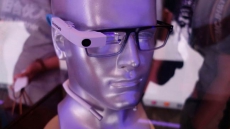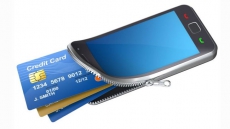TORONTO — Microsoft's new Windows 10 operating system has been praised for improving upon the flaws of its predecessor, but the company is facing widespread criticism for what some are calling invasive data collection.
Under its default privacy settings, Windows 10 tracks the way users type, what applications they use, their browsing history and other personal information.
Windows 10 also sends a weekly "activity update" on childrens' web browsing and computer history to their parents. Some parents have publicly described receiving those emails from Microsoft as "creepy," while others warn it could serve to humiliate teens at a vulnerable period in their lives.
Users have to actively turn off the features to stop the tracking.
Microsoft did not respond to a request for comment, but the company has said it uses the information to improve its services, and insists the information is anonymized.
Some experts argue that personal information is the new currency of the digital age, and the track-everything default settings of Microsoft's latest operating system are the new normal for digital privacy.
The company is hardly alone in using personal data to track its users, technology analyst Carmi Levy points out.
"Most people see a free service like Facebook or Twitter and they assume that it has absolutely no strings attached," he said.
Microsoft is offering Windows 10 as a no-cost upgrade for many of its users, yet Levy says there's no such thing as a free launch.
"We pay with our data, we pay with our personal information," he said, adding most tracking is benign and can improve the user experience by remembering individualized settings or passwords.
Google uses the search terms of its users to provide autocorrect suggestions for those with sloppy fingers, and many websites simplify the sign-on process by allowing you to log in with your own social media accounts.
Yet personal data can be used for more commercial purposes, and Levy said users are simply pawns in the mammoth world of online advertising.
Ad networks use personal information to track viewing and spending habits across a wide variety of websites, so someone who searches for the latest in denim styles will soon see ads for ripped jeans wherever they browse.
"The better targeted an ad is, the more you can charge for the privilege," Levy said.
In response to the Windows 10 privacy concerns, German developer Jonas Zimmerman has released a free program giving users access to all of its privacy options in a single window.
In an email, Zimmerman said that while Microsoft's operating system gives users broad choices about their data, many of the settings he found during the development of DoNotSpy10 weren't easily accessible or clearly defined.
"It took weeks to really understand what Windows does under the hood," he said.
Zimmerman says that even if users opt out of all of Microsoft's data collection during the Windows 10 setup, there are still hidden data-sharing features that only those who buy the Enterprise version of the operating system — or use his software — can disable.
Tobi Cohen, a spokeswoman for federal privacy commissioner Daniel Therrien, said her office is looking at Windows 10 to make sure it complies with Canada's privacy laws.
But lawyer David Fraser said government intervention won't necessarily improve digital privacy. Instead, he said, the responsibility rests with companies and consumers.
"Privacy law is about giving consumers choices and making sure they're informed about what they're agreeing to," he said.
Canada's Personal Information Protection and Electronic Documents Act requires companies to get consent before they use personal information, and requires more sensitive information to have more explicit consent.
Fraser said that gives companies some flexibility to innovate, adding that social media platforms like Twitter would never have taken off if every user was set to total privacy by default.
Yet he adds that online services need to be careful that they don't end up in the headlines for violating users' privacy despite staying within the letter of the law.
"Privacy law doesn't define creepy," he said.





